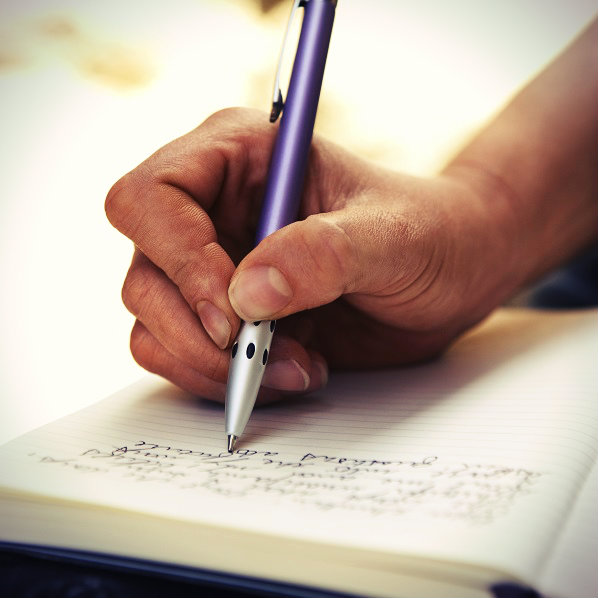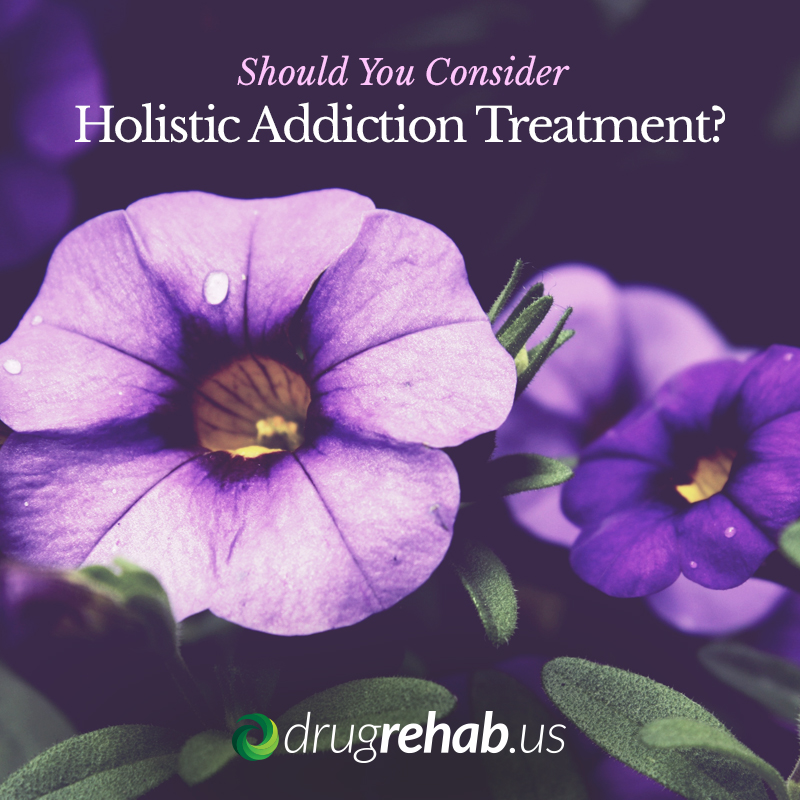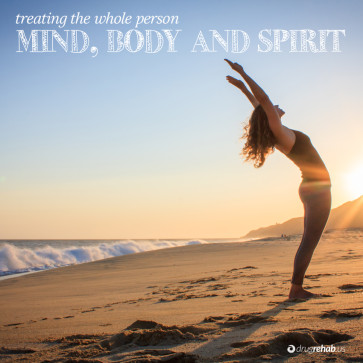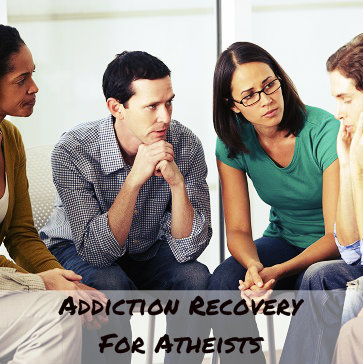19 Feb 2015
How Does Journaling Help Addiction Recovery?
If you have made it through a drug or alcohol addiction treatment program and are now sober, congratulations are in order. You should feel proud of your accomplishment. You should also continue to work at your sobriety.
Recovery is a lifelong process and if you let it slide, you will pay the consequences. There are many ways you can strengthen your sobriety including finding meaningful activities and relationships to fill your life. One activity you may not have considered, but should, is journaling.
What Is Journaling?
Journaling simply means personal writing done on a regular basis. This could mean writing every day, every other day, or once a week. Journaling is always personal, but it can be creative as well. It should not be a simple record of what you do each day; it should be a reflective exercise.
You can write about anything really, but a traditional journal includes reflections on the day’s activities as well as reflections on past experiences. A journal can also include creative writing exercises, fiction writing and poetry. The important part of journaling is that you do it regularly.
Journaling For Addiction Recovery
 Journaling can be a useful tool for anyone with any kind of life experiences, but for an addict in recovery it is particularly powerful in strengthening sobriety. Use your journal to reflect on your past as an addict, to puzzle through the chaos of your life with addiction and to record your accomplishments in recovery.
Journaling can be a useful tool for anyone with any kind of life experiences, but for an addict in recovery it is particularly powerful in strengthening sobriety. Use your journal to reflect on your past as an addict, to puzzle through the chaos of your life with addiction and to record your accomplishments in recovery.
Write about your daily battles to resist cravings and you will find your burden is lifted, even just a little bit. Record and reflect on your interactions with other people and how you are progressing at rebuilding damaged relationships. Write creative pieces like fiction or poetry if you find it clears your mind and gives you something interesting to do.
The Benefits Of Journaling
As an addict, your journal will help you reflect and organize your thoughts, feelings and experiences. This can be a powerful way to heal from your disease. Research has found that writing is beneficial for everyone, not just addicts. Take advantage of the healing power of journaling to help you become well again:
- Cope with trauma – Research has found that when people who have suffered traumatic experiences write about them, they are healthier, both physically and mentally.
- Beat stress and other negative emotions – When you write about what you are feeling, it helps to relieve those emotions. Write when you are angry, stressed, depressed or anxious.
- Make sense of yourself – Writing is a great way to get to know yourself better and to make sure you understand your complex thoughts and feelings.
- Solve problems – Clarifying your thoughts and feelings can help you to solve problems that are going on in your life and causing you worry.
Getting Started
There are so many benefits to writing. Why not get started right away? You can write on your computer, but using a pen and paper is also satisfying. Choose a notebook or nice journal and your favorite pen. Next, set aside at least 15 minutes for uninterrupted writing. Commit to those 15 minutes each day for one week. If you are skeptical about the process, promise yourself to at least try it once a day for a week. By the end of the week you may just be convinced to keep going.
When you start, write about whatever comes to mind. Don’t be afraid to write about your deepest thoughts and emotions. Remember that no one else needs to read this. It is for you alone. When you keep that in mind, and really let go, you will find that the healing power of your journal is immense.
See Our Other Posts On Alternative Therapies For Recovery
Many of us have long known that time spent in the great outdoors is restorative and healing. Studies are now proving that there are powerful mental, emotional and physical health benefits to spending time outside and being immersed in nature.
If you are recovering from a drug or alcohol addiction, add outdoor time to your to-do list. Camping, hiking or even just a stroll in a city park will do amazing things for you and, when you feel better, you strengthen your sobriety.
The Benefits Of Being In Nature For Recovery

Make a change and get outside more often. Doing so will give you numerous health benefits. It will help you stay sober as you find new meaning and satisfaction in your life.
Being outdoors means being more active. When you are more active you will be physically healthier. You will be stronger and may even lose weight. When you feel better you will be less likely to give in to urges to relapse. Perhaps even more important to your long-term sobriety are the mental health benefits of the great outdoors. Research has found that walking outside regularly can reduce the severity of depression. Being in nature also reduces feelings of stress, anger and anxiety; it drops blood pressure and helps improve memory and focus.
How To Add More Nature To Your Life
Spending more time in nature could be as simple as sitting outside in your backyard in the evening or going for a walk around your neighborhood instead of watching television. Here are some other easy ways you can get back to nature:
- Go for a walk – Going for a walk will give you the dual benefits of being in nature and getting exercise. If you can, find a place to walk that is as removed from human development as possible. A state or national park is a good choice, but if you can’t get to one, a city park works. Even just a walk around your neighborhood can be helpful.
- Start a backyard garden – Work on your yard or garden to get back to nature. Just weeding a flowerbed in the yard can be restorative, but you can aim bigger too. Try starting a vegetable garden. It will require regular maintenance and will get you outside often. As an added bonus, you’ll have plenty of fresh, organic produce.
- Enjoy the view – Research suggests that just looking at a nice, peaceful and natural view can be enough to give you positive health benefits. If you are not in a position to exercise or go for a walk, find a nice park bench with a pretty view and take it in.
- Take kids to the park – If you have kids, turn of their devices and take them out to play. This will benefit both you and the kids. You will all reap the rewards of spending time outside, getting exercise and, best of all, spending quality time together.
Nature is a powerful force for good and too many of us have become disconnected from it. As a recovering addict you stand to benefit immensely from spending time in the great outdoors. Replace a few of your TV shows or some of your smartphone time with a trip outside. You won’t regret it.
Learn More About Interesting And Unique Types Of Alternative Drug Treatment Programs!
Holistic medicine is a style of treatment, for any condition, that involves treating more than the condition itself. The philosophy of holistic medicine is to treat the whole person. This means treating the physical body, the mind and mental health, and the spirit (or soul). Holistic practitioners believe that specific conditions are related to a variety of ways you live and environmental exposure. Practitioners treat nearly every type of medical condition, including addiction. Should you try it?
What Makes Medicine Holistic?
Holistic sounds like something new age and experimental, but it is a type of medical practice that has been around for many years. It simply means treating the whole person, rather than just treating the disease. For instance, if you have high blood pressure, a doctor might prescribe a medication to lower it. A holistic practitioner would look at all your lifestyle factors that contribute to high blood pressure. Instead of medication as a first approach, a holistic provider might have you exercise more, lose weight, change your diet and practice meditation or yoga.
Holistic Treatments
 Some of the techniques a holistic practitioner might use that are outside the bounds of traditional medicine include:
Some of the techniques a holistic practitioner might use that are outside the bounds of traditional medicine include:
- Acupuncture
- Meditation
- Biofeedback
- Mindfulness therapy
- Yoga and exercise
- Nutrition
- Herbal supplements
- Hypnosis
- Prayer
Does Holistic Medicine Help Addicts?
Unfortunately, the research on holistic medicine and how it can help addicts is slim. There is no conclusive evidence to suggest that holistic practices help any better than other treatments. This doesn’t mean that they can’t help you, however. The best kind of addiction treatment program is one that is tailored to meet your individual needs. If meditation or prayer calm your mind and make you feel fewer urges to relapse, then it works for you.
Can I Use Holistic Medicine Alone?
You can try holistic medicine without any other types of addiction treatment, but most experts would not recommend it, especially if you have a severe addictive disorder. Many of the techniques used in holistic medicine can help you, but alone are not proven to help addicts get sober. The best way to get into recovery is to use a comprehensive plan of treatment designed for you by an addiction expert who understands your needs. The best treatment programs are individualized but include some kind of therapy or counseling, group support and social interaction and medicines where appropriate.
Is Holistic Medicine Right For Every Addict?
Not everyone will find success with a holistic approach, but many do. The key to finding the type of treatment that works best for you and helps you to get sober is trying different things. Almost all holistic practices are safe for everyone, so there are few reasons you shouldn’t try working with a holistic practitioner. Just be sure to find one that is experienced in working with addicts, is licensed and trained, and comes with excellent references. No type of treatment will help you if you are in the hands of an irresponsible or untrained care provider.
Holistic medicine is a field of health care that is growing in popularity as people begin to lose faith in traditional medicine. There is no reason you shouldn’t try working with a holistic practitioner, but remember that you have a serious medical condition. You need to seek the help of experienced professionals who know how to work with addiction and who will be committed to your wellness and success.
Learn More About How To Use Activities To Help Overcome Addiction
Your Healing Is Important. Call Us Now To Begin A New And Peaceful Life, Free From Addiction!
07 Aug 2014
The Place For Alternative Medicine In Addiction
Alternative medicine is gaining popularity as people begin to turn to natural practices in medicine, many of which have been used for centuries in cultures around the world. Some prefer to use alternative medicine, while others turn to practitioners when modern medicine has failed. Today, alternative medicine touches all areas of healing, including addiction. Many rehab facilities are beginning to incorporate some of these techniques.
What Is Alternative Medicine?
Among the different terms referring to alternative medicine, a few stand out. Alternative refers to any practice outside mainstream, modern, Western medicine. Some prefer the term holistic medicine, which means treating the whole person instead of treating a disease or a set of symptoms alone. Holistic approaches use many alternative practices. Complementary medicine is another term commonly used. These are alternative medicine practices that are used in conjunction with traditional treatments.
What Kinds Of Alternative Therapies Are Used For Addiction Treatment?
 Alternative medicine encompasses a variety of practices from ancient Chinese herbal remedies to modern biofeedback equipment. A few of these have found a place in addiction rehab and have helped some people in their battle to give up drugs or alcohol. Acupuncture, which comes from traditional Chinese medicine, is a practice that involves inserting thin needles into the skin. Acupuncture is believed by some to help reduce cravings and the urge to relapse.
Alternative medicine encompasses a variety of practices from ancient Chinese herbal remedies to modern biofeedback equipment. A few of these have found a place in addiction rehab and have helped some people in their battle to give up drugs or alcohol. Acupuncture, which comes from traditional Chinese medicine, is a practice that involves inserting thin needles into the skin. Acupuncture is believed by some to help reduce cravings and the urge to relapse.
Meditation and yoga are also often used as components of addiction treatment. Both come from ancient India and are great for relaxation and stress relief. Yoga is a type of exercise that involves using controlled movements. Research has proven that yoga helps people manage stress. When you can reduce stress in your life you can better resist the urge to abuse substances. Meditation has a similar effect; it helps focus the mind and control will. Turning to meditation when craving occurs can be a very powerful and effective tool.
Other types of alternative medicine may be used during addiction treatment, although research as to their effectiveness is limited. Some of these include art therapy, equine therapy (working with horses), massage therapy, herbal supplements, prayer or spiritual enrichment and hypnosis. Some rehab facilities may also use biofeedback and neurofeedback. These are techniques that use equipment to measure body and brain processes so that you can learn to control them. In neurofeedback, brain waves are retrained to a normal pattern to help reduce cravings.
Should I Use Alternative Medicine To Help Treat Addiction?
Whether alternative medicine practices can help you overcome addiction is uncertain. There is evidence for some of the more common practices like yoga and meditation, but others have received limited attention from researchers. For the most part, these practices are safe and it can’t hurt to try them. If they work for you and help you to stay sober and resist cravings, use them.
Only choose to participate in alternative medical care from experienced practitioners. If certain techniques are of interest, speak to your therapist, clinical team or doctor to get resources for practitioners who have worked with addicts. Most techniques are safe, but in the wrong hands there could be consequences or side effects. Also remember that alternative medicine should be used only in addition to primary addiction treatment. It is also necessary to keep up with therapy or support group sessions. The combination of traditional and alternative medicine, however, may prove to be just the right plan that works for you.
Read Our Other Posts On Addiction Recovery!
10 Jul 2014
What, You’re An Atheist? You’ll Never Get Sober!
Atheists in AA may get the impression that they’re going to have it tough. All the talk of a higher power might be abhorrent to you, and like The Fix writer Bill Manville, you might be told that “Booze is too tough to beat all alone without the help of Jesus and His Infinite Mercy.” But is this really true? If you’re an atheist, is AA just a waste of time because it requires you to accept something you can’t fathom? Bill wondered this himself, but he attended anyway and—aside from one short relapse—has been sober for 20 years. So how did he do it? Esprit de corps, or in English: group cohesion.
Lyrics Without The Music: Drawing Parallels With Addiction Recovery
 Manville asks if you’ve ever read the lyrics to a popular song without the music pumping along to back it up. If you have, you’ll have undoubtedly noticed that without the thumping beat, the power of the words is diminished. It’s only when those lines are spoken with the incorporeal addition of the feel and strength of the music itself that they take on an almost mystical sense of meaning and importance.
Manville asks if you’ve ever read the lyrics to a popular song without the music pumping along to back it up. If you have, you’ll have undoubtedly noticed that without the thumping beat, the power of the words is diminished. It’s only when those lines are spoken with the incorporeal addition of the feel and strength of the music itself that they take on an almost mystical sense of meaning and importance.
He draws the analogy between this and addiction treatment. When you attend lectures on addiction, learn about the consequences, causes and anything you can about your problem, it’s like reading the lyrics without the music. You understand the meaning in a flat, emotionless sense (and the message that you should stop abusing drugs) but you don’t have thumping, powerful drive underpinning it all that motivates you to action. It’s missing the music.
The Therapeutic Community And AA
The rehab Manville eventually attended called itself a “therapeutic community,” with a counselor commenting that, “it’s the existential experience of going through the process with a bunch of other addicts and drunks—all of whom want to stop too—that changes the self.” Despite his initial skepticism, he found himself beginning to understand the importance of this community aspect.
He likens it to the Army, where the tough experience of basic training builds a group morale that gives the otherwise uninspired the motivation to rush into enemy territory to complete the mission at hand. The fact that you’re part of a larger group that shares your mission and has experienced the same sort of problems you have gives you that same type of motivation. You aren’t just one person being asked to tackle addiction alone. You’re part of a larger, stronger group and that in itself gives you the motivation to fight.
Getting Sober Without God
In AA, the “higher power” doesn’t have to be a deity, to the relief of any addicted atheist. Manville found his higher power in a different place: the esprit de corps and the desire to socially fit in with the new group did it for him. That was where the music came from. His theory is explained perfectly in his attitude to the Lord’s Prayer as an atheist. He writes, “When I join hands with fellow members at the end, I feel so buoyed by this merging of self into the greater whole that I find myself reciting the Lord’s Prayer aloud just like rest, and if there is indeed a God listening above, I hope my over 20 years sobriety will make Her smile.”
Becoming Empowered Without Religion
The feeling of being part of a larger group gave Manville his power to overcome addiction, but the important lesson for atheists in AA isn’t that you need to embrace the group or you won’t get sober. Embracing and connecting with the group is important for many other reasons, but the thing that spurs you on personally (the “music” for you, if you will) can be anything that works for you.
The true lesson from Manville’s story is that atheists in AA need to understand that you don’t need God to get sober, just something—anything—that takes the intellectual lessons you’ve learned and provides the underlying vigor you need to turn them into reality. Becoming part of the group is just one potential solution. You need to find the one that works for you.
Learn More About Alternative Addiction Therapies
16 Feb 2012
Holistic Rehab Therapy is a Growing Trend
Eliminating addictive behavior and not just the addiction is the key to holistic drug abuse therapy. More addicts are turning to holistic rehabilitation centers to treat their substance abuse problems, according to a recent news article.


